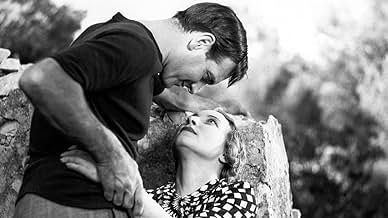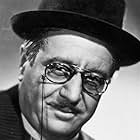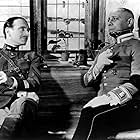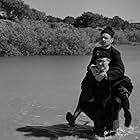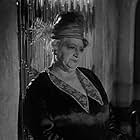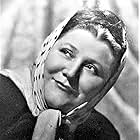After Fanny's boyfriend leaves her and sails away, she finds out she's pregnant.After Fanny's boyfriend leaves her and sails away, she finds out she's pregnant.After Fanny's boyfriend leaves her and sails away, she finds out she's pregnant.
Fernand Charpin
- Honore Panisse
- (as Charpin)
Auguste Mouriès
- Félix Escartefigue
- (as Mouriès)
Robert Vattier
- Albert Brun
- (as Vattier)
Édouard Delmont
- Dr. Felicien Venelle
- (uncredited)
Pierre Prévert
- Un voyageur du tramway
- (uncredited)
Annie Toinon
- Amélie
- (uncredited)
Storyline
Did you know
- TriviaFamed restaurateur and founder of California cuisine, Alice Waters, was so taken with the Fanny trilogy that she named her Berkeley restaurant Chez Panisse. The café upstairs from the restaurant is decorated with posters from the films Marius, Fanny, and César. Waters also named her own daughter Fanny and opened a small breakfast café in Berkeley called "Café Fanny" in 1984 which closed in March 2012.
- ConnectionsEdited into Histoire(s) du cinéma: Une histoire seule (1989)
Featured review
French playwright Marcel Pagnol, hooked on cinema since 1929, knew a sequel to one of his most famous plays which was turned into a movie would be a winner. When Paramount Pictures refused to produce a follow-up to 'Marius,' Pagnol formed his own film production company, and with the assistance of director Marc Allegret, released October 1932 "Fanny" to great acclaim.
Pagnol had seen his 1929 play 'Marius,' adapted into a 1931 film of the same name, directed by Alexander Korda. The story centered around a son of a Marseilles, France, bar-owner, Marius, who yearns to see the world by getting a job for a long sea voyage even though he had a serious relationship with his girlfriend Fanny. "Marius" was a success for Paramount. After the studio turned down Pagnol's offer for a sequel, the playwright proceeded to write a script penned as "Fanny" and make a movie from it. The difference in quality between the two films reflects the evolution of film technology that progressed quickly during that short period. Whereas the original was a stage-bound affair with most of its scenes constricted inside the tavern, 1932's "Fanny's" camera is more mobile, capturing exterior footage of Marseilles and tracking Fanny (Orane Demazis) throughout the city. Director Allegret hid his camera inside a van to capture the city's residents going about their business unaware they were on film. Because of such shots, producer Pagnol has been called a pioneer in cinema Neorealism, mixing both the dramatic plot of the movie with real-life scenes.
In "Fanny," the last night the two lovers spend together before Marius sets out on his five-year voyage results in a pregnancy. Upon discovering the budding life in her womb, Fanny turns to Honore Panisse (Charpin), a prosperous sea merchant who's 30 years older. In 'Marius,' he had proposed to Fanny, only to be rejected. In the sequel, Fanny is resigned to accept his proposal to marry for the sake of her newborn. Then, after two years at sea, Marius, on shore leave, surprises Fanny. That's when Pagnol makes things very interesting for all those involved. Film critic Jamie Rich said "the acting is so good, you might find yourself wishing this were an ongoing series."
Riding on the success of "Fanny," Pagnol wrote a sequel to the sequel. He gave up composing stage plays to make feature films, and he directed the third of his so-called 'Marseilles Trilogy,' 1936's 'Cesar.' The movie picks up the story of Fanny where her son, Cesariot, is a young man and is told about who his real father is after his adopted father Panisse died.
"Fanny's" international popularity gave French cinema a boast in both quality and popularity. Pagnol's trilogy has been made into several motion pictures, the first a James Whale directed and Preston Sturges scripted, 1938s "Port of Seven Seas." The three stories were combined into a 1954 Broadway musical, running an astounding 888 performances. The 1961 Technicolor film, "Fanny," with Leslie Caron, Maurice Chevalier and Charles Boyer, blends all three scripts of Pagnol's into one full-length film. And the Daniel Auteuil directed, written and acted 2013 "Fanny" was based on the 1932 version.
Pagnol had seen his 1929 play 'Marius,' adapted into a 1931 film of the same name, directed by Alexander Korda. The story centered around a son of a Marseilles, France, bar-owner, Marius, who yearns to see the world by getting a job for a long sea voyage even though he had a serious relationship with his girlfriend Fanny. "Marius" was a success for Paramount. After the studio turned down Pagnol's offer for a sequel, the playwright proceeded to write a script penned as "Fanny" and make a movie from it. The difference in quality between the two films reflects the evolution of film technology that progressed quickly during that short period. Whereas the original was a stage-bound affair with most of its scenes constricted inside the tavern, 1932's "Fanny's" camera is more mobile, capturing exterior footage of Marseilles and tracking Fanny (Orane Demazis) throughout the city. Director Allegret hid his camera inside a van to capture the city's residents going about their business unaware they were on film. Because of such shots, producer Pagnol has been called a pioneer in cinema Neorealism, mixing both the dramatic plot of the movie with real-life scenes.
In "Fanny," the last night the two lovers spend together before Marius sets out on his five-year voyage results in a pregnancy. Upon discovering the budding life in her womb, Fanny turns to Honore Panisse (Charpin), a prosperous sea merchant who's 30 years older. In 'Marius,' he had proposed to Fanny, only to be rejected. In the sequel, Fanny is resigned to accept his proposal to marry for the sake of her newborn. Then, after two years at sea, Marius, on shore leave, surprises Fanny. That's when Pagnol makes things very interesting for all those involved. Film critic Jamie Rich said "the acting is so good, you might find yourself wishing this were an ongoing series."
Riding on the success of "Fanny," Pagnol wrote a sequel to the sequel. He gave up composing stage plays to make feature films, and he directed the third of his so-called 'Marseilles Trilogy,' 1936's 'Cesar.' The movie picks up the story of Fanny where her son, Cesariot, is a young man and is told about who his real father is after his adopted father Panisse died.
"Fanny's" international popularity gave French cinema a boast in both quality and popularity. Pagnol's trilogy has been made into several motion pictures, the first a James Whale directed and Preston Sturges scripted, 1938s "Port of Seven Seas." The three stories were combined into a 1954 Broadway musical, running an astounding 888 performances. The 1961 Technicolor film, "Fanny," with Leslie Caron, Maurice Chevalier and Charles Boyer, blends all three scripts of Pagnol's into one full-length film. And the Daniel Auteuil directed, written and acted 2013 "Fanny" was based on the 1932 version.
- springfieldrental
- Dec 17, 2022
- Permalink
- How long is Fanny?Powered by Alexa
Details
Box office
- Gross US & Canada
- $8,262
- Opening weekend US & Canada
- $7,720
- Jan 8, 2017
- Gross worldwide
- $8,262
- Runtime2 hours 5 minutes
- Color
- Aspect ratio
- 1.20 : 1
Contribute to this page
Suggest an edit or add missing content







